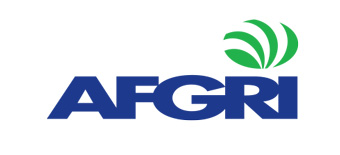Ensuring a sustainable agricultural sector
Farmers face many complex decisions in order to ensure the sustainability of their enterprises and the food security of the nation.
In a panel discussion as part of the Nation in Conversation series at Nampo Harvest Day, Johan Geel, Group CFO of AFGRI, said to ensure the long-term financial sustainability of the agricultural sector farmers need to diversify and adapt to advanced technology to improve their crops.
“To succeed in an increasingly complex sector, farmers need sound financial planning as the sector is capital intensive, return on investments are generally low and it takes between 7 to 9 months for most crops to deliver an income,” says Geel. Added to that, modern technologically advanced equipment requires an adequately trained labour.
Consensus amongst the panellists is that the current debt ratio of farmers at 35% is acceptable, even though the debt burden is on a record high at R145 billion. Geel says the expected bumper crop in the current season will help farmers to pay back their debt quickly. “However, careful financial planning is needed given the economic and political uncertainties. The recent sovereign downgrades by ratings agencies will have a negative impact on the farming sector as the downgrades will result in higher interest rates, which in turn means that less capital will be available. A weaker South African currency will also mean a significant increase in the price of imported goods such as equipment, diesel, insecticides and fertiliser.”
Geel says the current political uncertainty is not factored into financing decisions. “Companies like AFGRI need to discount the political noise in favour of expertise and the ability of the farmer and the land to produce a positive return when evaluating financing to farmers. We have to stick to the facts.”
Diversification of products will also ensure the long-term sustainability of a farming enterprise as well as the agricultural sector, says Geel. “Farmers with healthy balance sheets are those who have successfully diversified their operations. Diversification presents its own challenges, but in AFGRI’s experience established businesses that can add land cost effectively can be successful.”
The agricultural sector can play a very important role in job creation, but what is needed is better training as more and more, workers are expected to operate high-tech equipment. This adoption of high-tech equipment assists in diversification and efficiencies.
A sustainable agricultural sector will go a long way to trigger economic growth and in creating employment. “Some agricultural sectors are very labour intensive and the development and progress of the small towns are directly link to the well-being of the agriculture sector,” says Geel.


